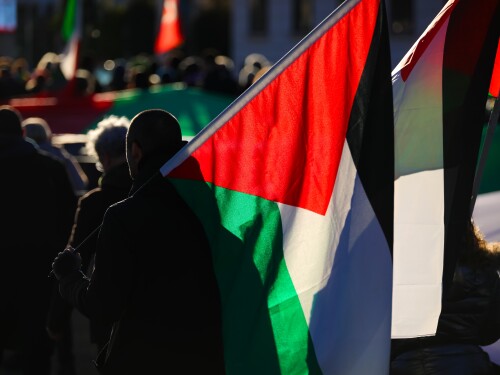Hamas
The Way Forward for Those Seeking Independence Is Accountability for Their Actions and Rule of Law
The Convergence of West and South Asian Terror Networks Should Worry Both India and Israel
We Await a Medical Study by the Lancet on the 98 Israeli Hostages Held for over a Year in Hamas Cages, Their Weight, Their Psychological Condition
U.S. President Donald Trump Engages in a Double Pander, Giving Both His Pro-Israel and His Islamist Constituencies What They Most Want
Hamas Now Stands to Rebuild Its Rule over Gaza, and to Reconstitute Its Hold on the Strip
The Terrorist Group’s October 7 Attack on Israel Was the Opening Salvo in a Move for Broader Palestinian Leadership
When Israel Conducts Counter-Terror Operations, Its Aim Should Be to Kill Rather than Capture Terrorists
Denying Iran a Nuclear Bomb and Freeing the Region from Tehran’s Grip Could Mitigate Any Negative Fallout from the Deal
The United States Historically Has Wielded Sanctions to Protect Citizens and Quell Threats Before They Spiral Into Conflict
Denial Remains the Order of the Day About the Lack of Freedom for Germany’s Dwindling Jewish Community
Comparing the Iran and Hamas Hostages Crises Shows How Much Has Changed in the Last Four Decades – None of It for the Better
Do Not Be Surprised If Erdoğan Offloads the Hamas Presence from Turkey Into Syria
Hamas, Hezbollah, and Assad’s Syria No Longer Pose a Strategic Threat, but Unpredictable Turkey and Its Proxies Are Ascendant
Hamas’s Penetration of UNRWA Means the Terror Group Hijacks Supplies the Aid Organization Says It Delivers
Terror Group Pinned Hopes of Salvation on the Iranian Axis and World Pressure on Israel, but Now Has Little Time Until President Trump Returns




















